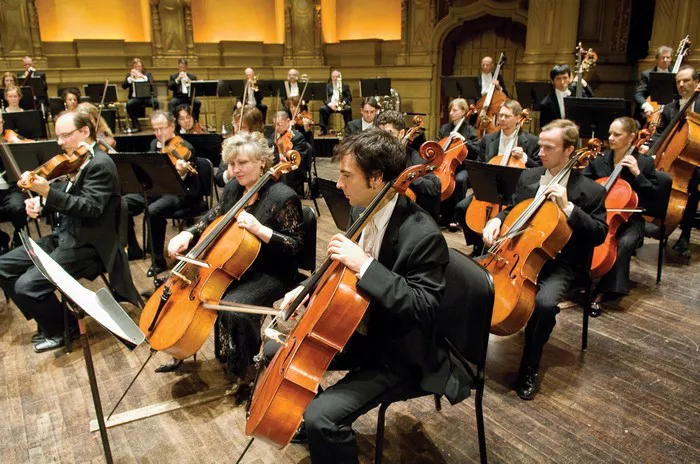Classical music has captivated listeners for centuries. Its beauty transcends language and culture, speaking directly to the soul. But what makes certain pieces stand out as the most beautiful? The answer often lies in the combination of emotional depth, technical brilliance, and universal appeal. This article explores some of the most beautiful classical compositions, categorized by their unique qualities and impact on listeners.
Understanding Beauty in Classical Music
The Emotional Power of Music
Classical music’s beauty is rooted in its ability to evoke deep emotions. A symphony can inspire awe, a piano sonata can move us to tears, and a string quartet can create a sense of intimacy. These emotional connections often define the pieces that are considered most beautiful.
For example, Franz Schubert’s “Ave Maria” is celebrated for its angelic melody and soothing harmonies. Its simplicity and emotional depth make it a favorite for weddings and spiritual occasions. Similarly, Samuel Barber’s “Adagio for Strings” has become synonymous with mourning and reflection, often played during times of collective grief.
Technical Mastery and Innovation
Beauty in classical music also lies in the technical brilliance of the composition. Many of the most beautiful works are those that pushed musical boundaries, showcasing the composer’s mastery of form and innovation.
Ludwig van Beethoven’s Symphony No. 9, for instance, combines choral and orchestral elements in a way that had never been done before. The final movement, “Ode to Joy,” is a celebration of universal brotherhood and remains one of the most iconic and uplifting pieces in classical music.
Iconic Examples of Beautiful Classical Music
Romantic Era Masterpieces
The Romantic era (1820–1900) is often considered the golden age of emotional expression in music. Composers of this period created some of the most beautiful and enduring works.
1. Frédéric Chopin – Nocturnes
Chopin’s Nocturnes are among the most exquisite piano compositions ever written. These pieces, characterized by their lyrical melodies and delicate harmonies, evoke a sense of introspection and longing. The Nocturne in E-flat Major, Op. 9, No. 2, is particularly beloved for its graceful flow and emotional warmth.
2. Pyotr Ilyich Tchaikovsky – Swan Lake
Tchaikovsky’s ballet Swan Lake is a masterpiece of romantic storytelling. The main theme, known as the “Swan Theme,” is both haunting and beautiful, encapsulating the tragic love story at the heart of the ballet. The lush orchestration and emotional intensity make it unforgettable.
Baroque Brilliance
The Baroque era (1600–1750) produced music of great complexity and beauty, characterized by ornate melodies and intricate counterpoint.
1. Johann Sebastian Bach – Air on the G String
Bach’s Air on the G String is a quintessential example of Baroque beauty. Its serene melody and elegant simplicity have made it a favorite for weddings, films, and moments of quiet reflection.
2. George Frideric Handel – Messiah
Handel’s oratorio Messiah includes the iconic “Hallelujah Chorus,” a piece that inspires awe and joy in audiences worldwide. While the entire oratorio is a masterpiece, the “Pastoral Symphony” section stands out for its gentle beauty and peaceful atmosphere.
Timeless Piano Compositions
The piano has been a central instrument in classical music, producing some of its most beautiful works.
1. Claude Debussy – Clair de Lune
Debussy’s Clair de Lune is a masterpiece of Impressionist music. Its dreamy, flowing melody captures the essence of moonlight, creating a sense of calm and wonder. This piece has become synonymous with tranquility and introspection.
2. Franz Liszt – Liebestraum No. 3
Liszt’s Liebestraum No. 3 is a romantic piano work that explores themes of love and passion. Its lush harmonies and soaring melodies make it one of the most emotive and beautiful pieces in the piano repertoire.
The Beauty of Choral Works
1. Wolfgang Amadeus Mozart – Requiem
Mozart’s Requiem is a choral masterpiece that combines solemnity with transcendence. The “Lacrimosa” movement is particularly moving, with its poignant melody and dramatic dynamics.
2. Gabriel Fauré – Requiem
Fauré’s Requiem is another stunning choral work, distinguished by its ethereal beauty and focus on peace rather than judgment. The “Pie Jesu” movement is a highlight, showcasing the purity of the human voice.
Orchestral Elegance
Orchestral music often captures the grandeur and beauty of classical music.
1. Gustav Mahler – Symphony No. 5 (Adagietto)
The Adagietto from Mahler’s Symphony No. 5 is a tender love letter set to music. Its lush strings and gentle pacing create an atmosphere of pure beauty, making it a favorite for weddings and romantic occasions.
2. Antonio Vivaldi – The Four Seasons
Vivaldi’s The Four Seasons is a set of violin concertos that vividly depict the changing seasons. The “Winter” Largo movement is particularly beautiful, evoking a serene and frosty landscape.
Impact on Listeners and Culture
Beautiful classical music has a profound impact on listeners. It has been used in films, advertisements, and even therapy to evoke emotions and create memorable experiences. For instance, Beethoven’s “Moonlight Sonata” has been featured in countless films to convey introspection and melancholy. Similarly, Tchaikovsky’s “Waltz of the Flowers” is often used in holiday commercials to evoke joy and nostalgia.
Why Does Beauty in Music Matter?
Classical music’s beauty goes beyond aesthetics. It connects people across generations and cultures, providing solace, inspiration, and a sense of shared humanity. These timeless pieces remind us of our capacity for creativity and emotional depth, enriching our lives in countless ways.
See Also: Valuing Soviet Era Classical Music on Vinyl
Conclusion
The most beautiful classical music transcends time, culture, and language. From the emotional depth of Chopin’s Nocturnes to the grandeur of Beethoven’s Symphonies, these works continue to inspire and move listeners. They represent the pinnacle of human creativity and remind us of the enduring power of music to touch our souls.
Whether you are a seasoned classical music enthusiast or a newcomer, exploring these masterpieces is a journey worth taking. Let these timeless compositions guide you to a deeper appreciation of the beauty and universality of music.
Related Topics
Unveiling Carl Orff’s Importance on Classical Music Education

